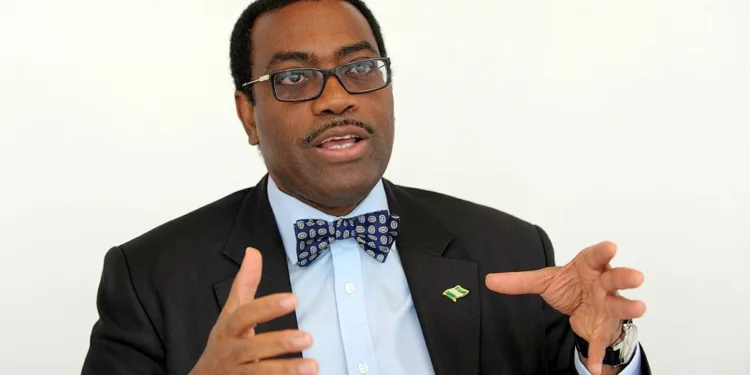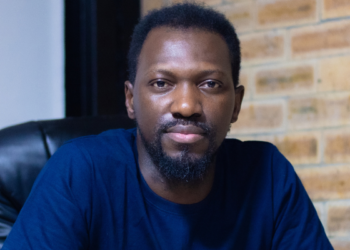Akinwumi Adesina, head of the African Development Bank (AfDB) has spoken against the international loans that are tied to Africa’s natural resources like crude oil, gold, food produce, and other minerals. He believes it’s time for Africa to extricate themselves from these loans that exploit them of their natural resources.
During his address to the media, Adesuina brought to light the concerning trend of hidden loans extended to African nations.
These loans, he explained, often come with strings attached, leveraging the continent’s abundant natural resources, such as oil or vital minerals essential for manufacturing smartphones and electric vehicle batteries.
This arrangement has enabled countries like China to assert significant influence over mineral extraction operations, particularly evident in regions like Congo. Unfortunately, rather than bolstering economic stability, these deals have plunged certain African nations into financial turmoil, exacerbating their debt burdens and hindering sustainable development initiatives.
In his exact words, “They are just bad, first and foremost, because you can’t price the assets properly. If you have minerals or oil under the ground, how do you come up with a price for a long-term contract? It’s a challenge.”
Also Read: GSE Among Top 6 Best Performing Stocks In Africa
What Does This Mean For African Countries That Are Recipient Of These Kinds Of Loans?
Adesina explained that the concept of tying prospective revenue from natural resource exports to loan repayments is presented as a mutually beneficial arrangement.
For recipients, it offers a means to secure funding for essential infrastructure projects, while Western and Asian countries mitigate the risk of non-repayment. However, this practice has garnered scrutiny due to its potential long-term implications on the economy of African countries.
With the global transition toward renewable energy sources and the rising popularity of electric vehicles, there has been a significant surge in demand for critical minerals.
These minerals, essential for manufacturing components like batteries and solar panels, have become coveted commodities in the global marketplace. Consequently, Western countries have increasingly leveraged the promise of future mineral exports as collateral for loans to resource-rich nations.
This also includes a China-Congo deal that strengthens Beijing’s position in the global supply chain for electric vehicles (EVs) and other products as it taps into the world’s largest reserves of cobalt, a mineral used to make lithium-ion batteries, in the impoverished Central African country.
The AFDB’s chief, whose Abidjan-based institution has helped finance development in African countries emphasized that these arrangements come with a bag of problems that pushes most African countries into a state of continuous poverty.
He reiterated that the level of negotiations remains unbalanced with the lender dictating the terms of the agreement to cash-strapped African nations. This power imbalance, coupled with a lack of transparency and the potential for corruption amongst leaders creates fertile ground for exploitation.
Adesina stated, “These are the reasons I say Africa should put an end to natural resource-backed loans.” He also pointed to a bank initiative that helps “countries renegotiate those loans that are asymmetric, not transparent and wrongly priced.”
In speaking of the unbalanced level of negotiation, he pointed out Chad’s crippling financial crisis after an oil-backed loan from commodity trader, Glencore, which left the Central African nation using most of its oil proceeds to pay off its debt. This mode of payment has further impoverished Chad and the need to extricate themselves from such agreement keeps increasing.
FinTech Telex discovered that since the early 2000s, a minimum of eleven (11) African nations have entered into numerous loan agreements valued at billions of dollars, all backed by their abundant natural resources.
China emerges as the predominant financier, primarily through policy banks and state-affiliated enterprises, dominating the landscape of funding in these regions.
He added that,
“It is not about one country or the other; any country can exploit when you don’t know what you are doing. The capacity to negotiate at the country level, the capacity to plan, the capacity for debt management is very important.”
Adesina emphasized his commitment to educating and implementing measures to prevent African countries from entering such an agreement.
The former Nigerian minister for agriculture said the African Development Bank’s new Alliance for Green Infrastructure in Africa aims to mobilize a whooping sum of $10 billion to help countries finance “bankable” infrastructure, including in the energy and transport sectors, which could limit problematic financing.










